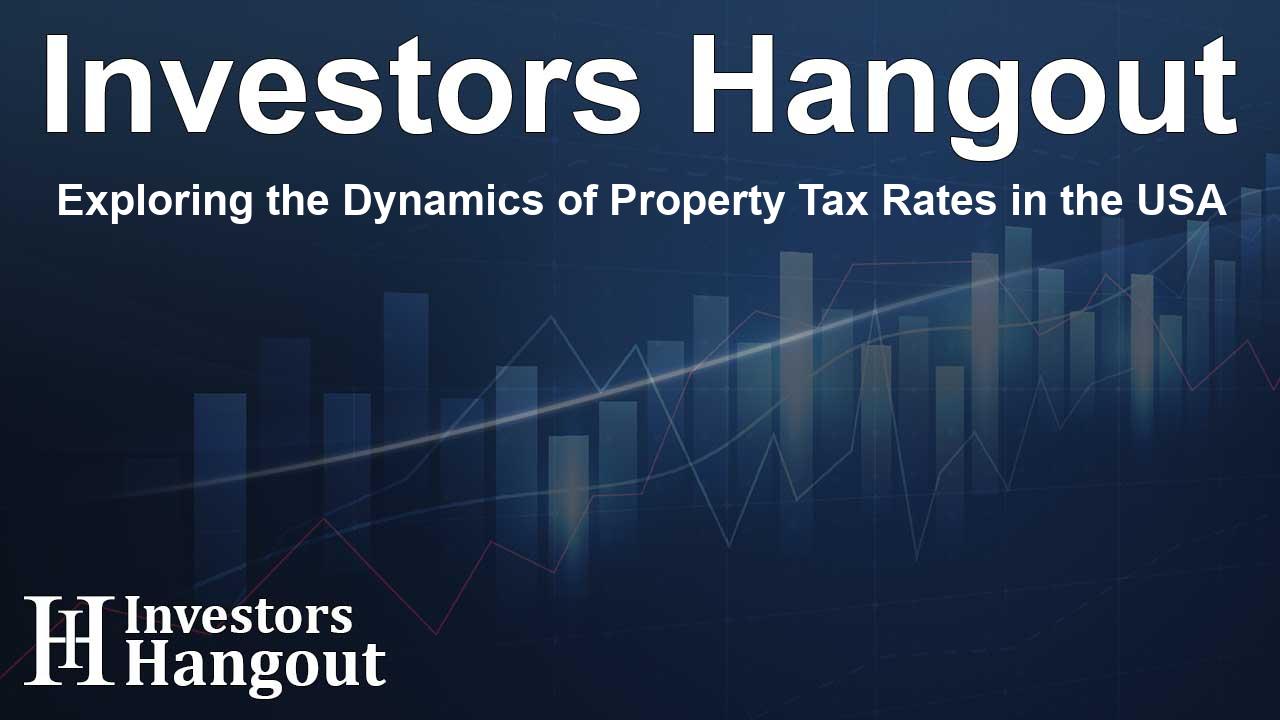Exploring the Dynamics of Property Tax Rates in the USA

Understanding Property Tax Variations
The Lincoln Institute of Land Policy and Minnesota Center for Fiscal Excellence provide insights into how public policy, property values, and local spending decisions influence property tax rates throughout the United States.
Factors Influencing Property Tax Rates
Recent reports reveal four primary factors determining effective property tax rates: reliance on property taxes, property values, levels of government spending, and the treatment of various property types within local tax systems.
Key Findings from the Annual Study
This annual analysis examines the effective tax rates—i.e., property taxes as a percentage of market value—across 75 large cities and 50 rural municipalities. Findings show that elevated effective property tax rates typically emerge from combining high property tax reliance, low home values, and increased local government spending.
City Comparisons: Detroit and Honolulu
In Detroit, Michigan, the highest effective property tax rate of 3.02 percent on median-valued homes showcases the challenges posed by low property values. Conversely, Honolulu, Hawaii, boasts the lowest effective rate at 0.30 percent, attributed to high property values and low local government expenditure—influenced by centralized school funding.
Impact of Assessment Limits
Assessment limits, which cap property value increases for taxation, can unintentionally shift tax burdens. New homeowners in cities like Tampa and Miami often encounter property tax bills significantly higher than those of long-time residents, fostering inequality in tax obligations.
Commercial and Residential Tax Disparities
In numerous jurisdictions, commercial, industrial, and apartment properties experience steeper effective tax rates compared to residential homes. For example, in Charleston, South Carolina, commercial compounds are taxed nearly six times more than owner-occupied residential properties due to preferential treatment for homeowners.
Concluding Insights on State Policy Decisions
Bob DeBoer, research director at the Minnesota Center for Fiscal Excellence, emphasizes that while effective tax rates are useful for cross-jurisdictional comparisons, they often do not narrate the entire story of tax equity within states. The report serves as a crucial reminder that nuanced state policy decisions significantly shape property tax systems.
The Average Effective Tax Rate
A study of the largest city in each state indicates that the average effective tax rate for median-valued homes across 53 cities stands at 1.22 percent for the current year. Thus, a home valued at $200,000 would incur a tax of approximately $2,440 annually at this rate.
Frequently Asked Questions
What factors contribute to variations in property tax rates?
Key factors include property tax reliance, local government spending levels, property values, and classification of different property types.
How do high and low effective tax rates impact homeowners?
High effective tax rates can lead to increased financial burdens on homeowners, while lower rates may ease property ownership costs.
What was the overall finding concerning urban property tax rates?
The study highlighted a reduction in average effective tax rates for median-valued homes, despite some cities witnessing an increase.
Why are commercial properties taxed at higher rates in some areas?
Commercial properties often face higher tax burdens due to classification systems that favor residential homeowners, creating disparities in taxation.
What implications do local spending and taxation policies have?
These policies can dramatically influence tax burdens for various property classes, depending on how revenues are generated and allocated by local governments.
About The Author
Contact Riley Hayes privately here. Or send an email with ATTN: Riley Hayes as the subject to contact@investorshangout.com.
About Investors Hangout
Investors Hangout is a leading online stock forum for financial discussion and learning, offering a wide range of free tools and resources. It draws in traders of all levels, who exchange market knowledge, investigate trading tactics, and keep an eye on industry developments in real time. Featuring financial articles, stock message boards, quotes, charts, company profiles, and live news updates. Through cooperative learning and a wealth of informational resources, it helps users from novices creating their first portfolios to experts honing their techniques. Join Investors Hangout today: https://investorshangout.com/
The content of this article is based on factual, publicly available information and does not represent legal, financial, or investment advice. Investors Hangout does not offer financial advice, and the author is not a licensed financial advisor. Consult a qualified advisor before making any financial or investment decisions based on this article. This article should not be considered advice to purchase, sell, or hold any securities or other investments. If any of the material provided here is inaccurate, please contact us for corrections.
